What Is Soft Skills In Digital Language Lab?
“Soft skills” is a term used by employers to describe the personality traits and interpersonal skills required of employees to succeed in almost any job. In recent years, they have become more and more important to a successful professional career and recently have become a popular talking point in the media, among employers and officials.
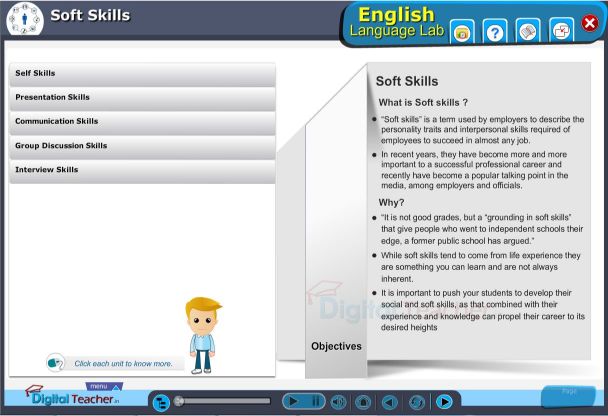 Types Of Soft Skills
Types Of Soft Skills
Types Of Soft Skills? – Digital Language Lab:
Soft skills, also called interpersonal skills, are abilities that can be useful in any job. Unlike hard skills, these skills are vague and hard to define. They’re harder for you to quantify since candidates may not list them on their resumes. These skills include things like communication, motivation, teamwork, time management, work ethic, and flexibility.
Hard skills are the specific abilities that are required for a certain job. These abilities are specific and teachable, and they can be easily defined and measured. Usually, people learn hard skills at school or in their previous jobs. For example, if you’re hiring for engineering roles, hard skills may include things like a professional engineer designation, experience with welding equipment, or the ability to repair equipment. Hard skills may also include proficiency in a foreign language, like French or Spanish.
Following topics are covered in Digital Language Lab Soft Skills section:
Self Skills:
- Know Your Self
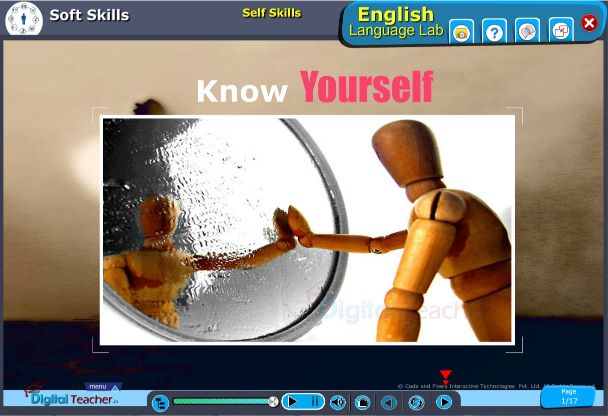 Self Skills Know Yourself
Self Skills Know Yourself
- What is Self
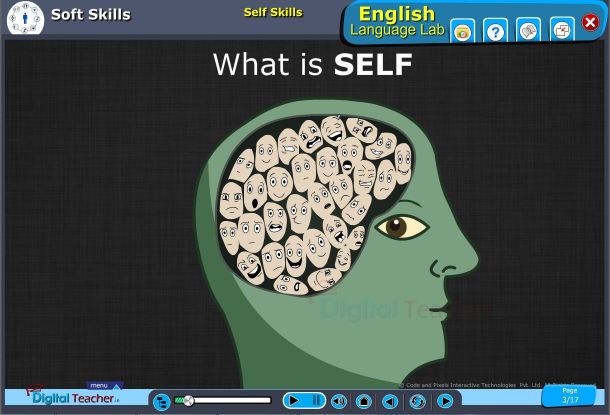 What Is Self
What Is Self
- 3 Important Reasons to Know Self
- Self Love
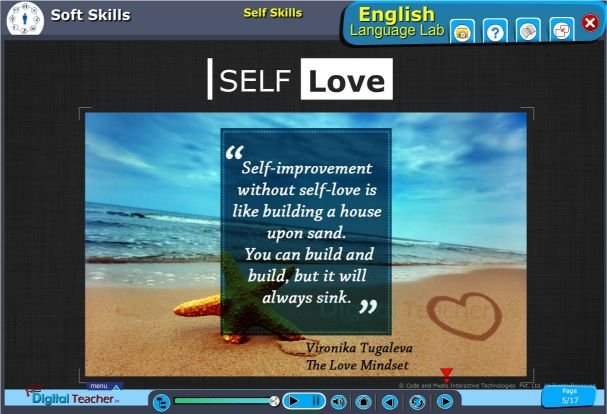 Self Skills Self Love
Self Skills Self Love
- Independece
- Clear Decision Making
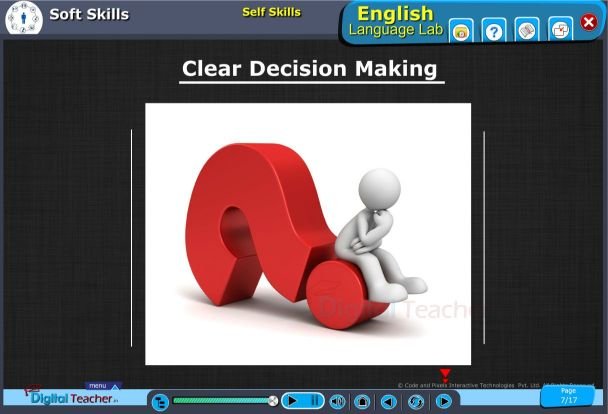 Clear Decision Making
Clear Decision Making
- Self Esteem
 Self Esteem
Self Esteem
- Building Self Esteem
- Activity – Building Self Esteem
- Self Insight
- Johari Window
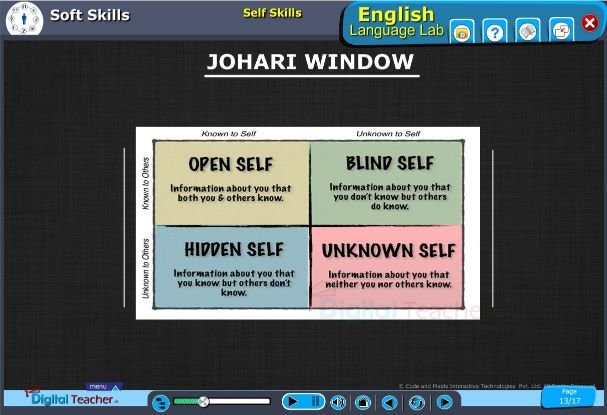 Johari Window
Johari Window
- Activity – Johari Window
Presentation Skills:
- Presentation Skills
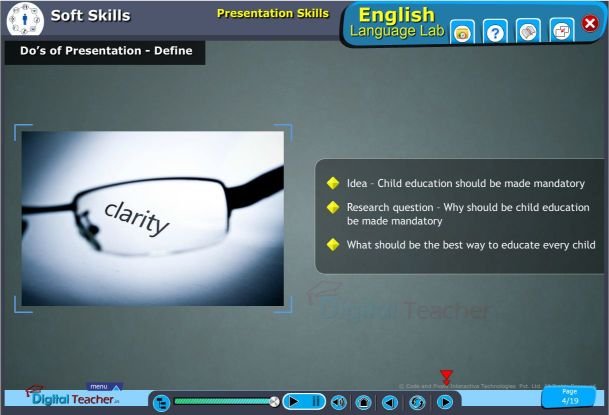 Presentation Skills
Presentation Skills
- Importance of Presentation Skills
- Do’s of Presentation
- Do’s of Presentation – Define
- Do’s of Presentation – Kiss Your Audience
- Do’s of Presentation – Pace
- Do’s of Presentation – Body Language
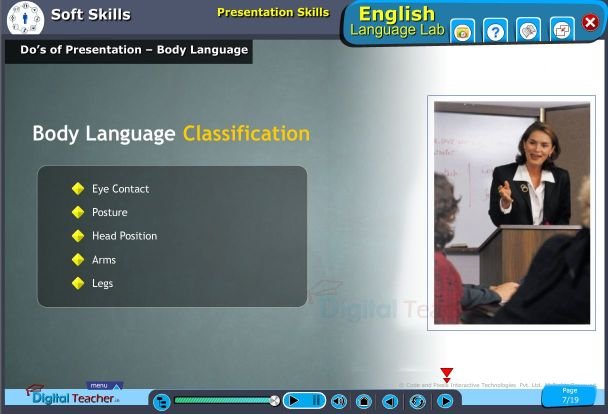 Presentation Skills Body Language
Presentation Skills Body Language
- Body Language Classification – Eye Contact
- Body Language Classification – Posture
- Body Language Classification – Head Position
- Body Language Classification – Arms
- Body Language Classification – Legs
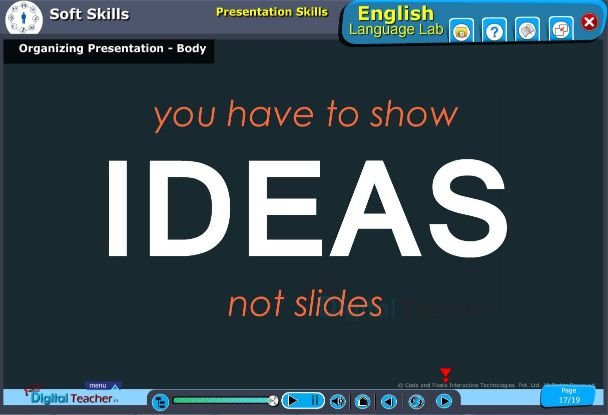 Organizing Presentation Body
Organizing Presentation Body
- Do’s of Presentation – Relevance
- Don’ts of Presentation
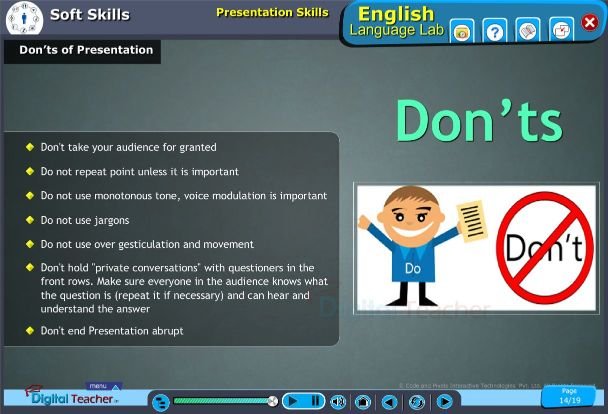 Presentation Not To Do
Presentation Not To Do
- Organizing Presentation
- Introduction
- Body
- Conclusion
Communication Skills:
- Communication Skills
- Communication – Definition
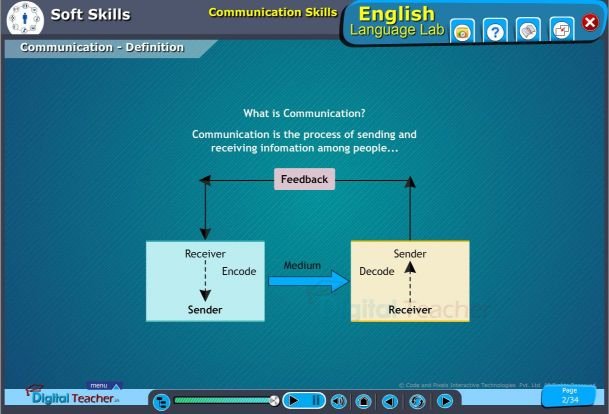 Communication Definition
Communication Definition
- Communication – Process
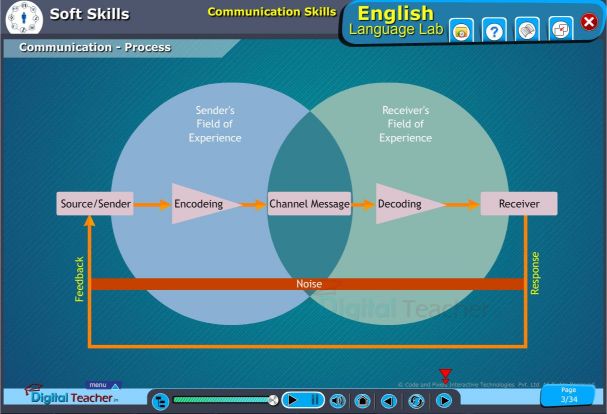 Communication Process
Communication Process
- Key Elements of Communication – what to Communicate
- Key Elements of Communication – How to Communicate
- Key Elements of Communication – what to Expect
- Communication – Objectives
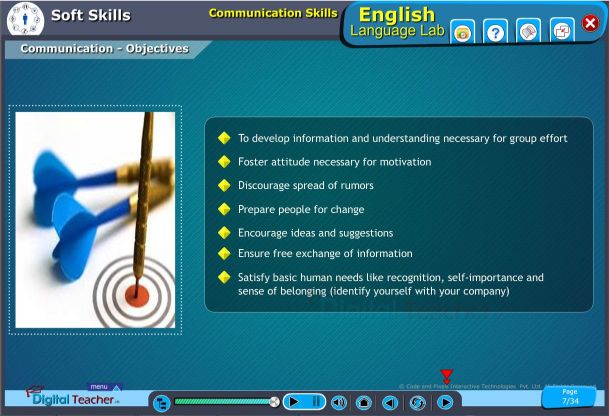 Communication Objectives
Communication Objectives
- Communication Functions – Inform/Suggest
- Activity – Holding pencil
- Communication Functions – Instruct/Command
- Communication Functions – Integrate
- Communication Functions – Influence/Persuade
- Activity-Influence – Persuade
 Communication Functions Influence Persuade
Communication Functions Influence Persuade
- Communication Barriers – Interpersonal
- Unclear Process
- Chain of Command
- Activity – Chinese Whisper
- Personal Limitations
- COMMUNICATION barriers – Common
- Human Nature
- Conflicts
- Power
- Learn to Speak for Yourself
- Ball Activity
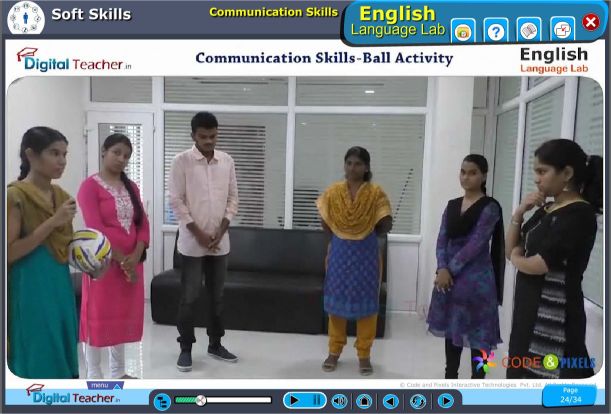 Communication Skills Ball Activity
Communication Skills Ball Activity
- Power of Listening
- Reason for Poor Listening
- Guidelines for Effective Listening
- Barriers to Listening
 Barriers To Listening
Barriers To Listening
- Paper Activity
- Body Language
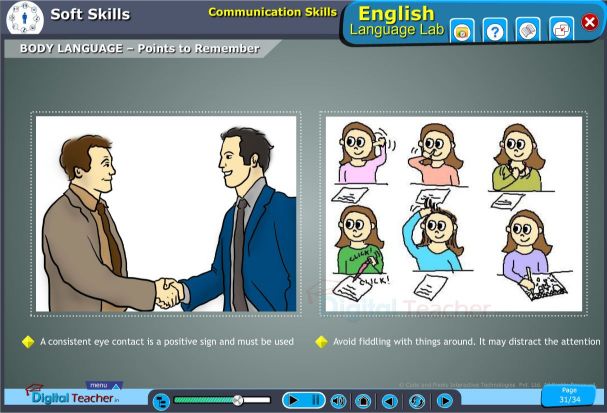 Body Language Points To Remember
Body Language Points To Remember
- Body Language – Points to Remember
- Activity – Body Language
- Remember
Group Discussion:
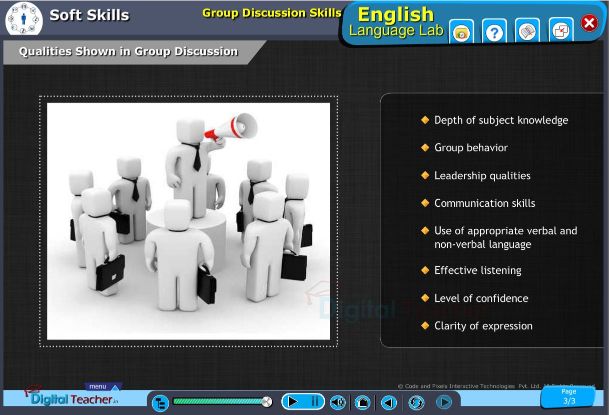 Qualities Shown In Group Discussion
Qualities Shown In Group Discussion
- Tips for Group Discussion
- Conclusion
- Qualities Shown In Group Discussion
Interview Skills:
- Interview Skills
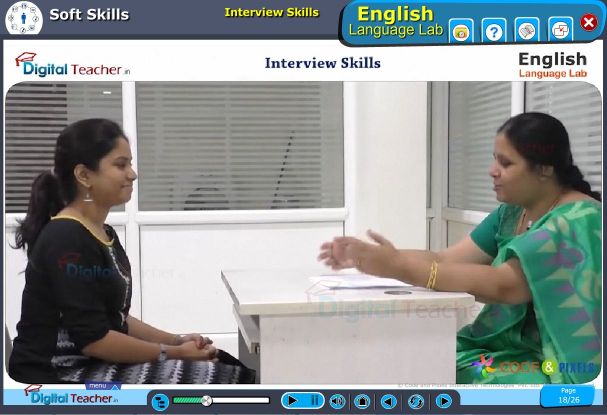 Interview Skills Tips
Interview Skills Tips
- Job offer Process
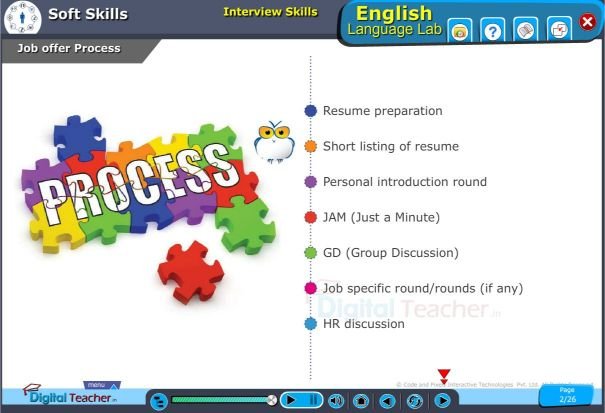 Job Offer Process
Job Offer Process
- Resume – Purpose
- Tips for RESUME Preparation
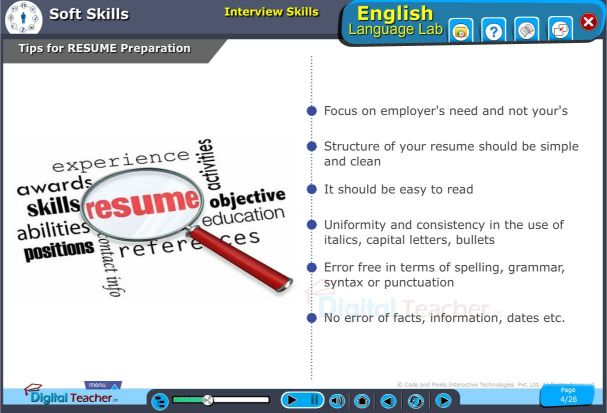 Tips For Resume Preparation
Tips For Resume Preparation
- Order of Information
- Tips for Effective INTERVIEW – Appearance
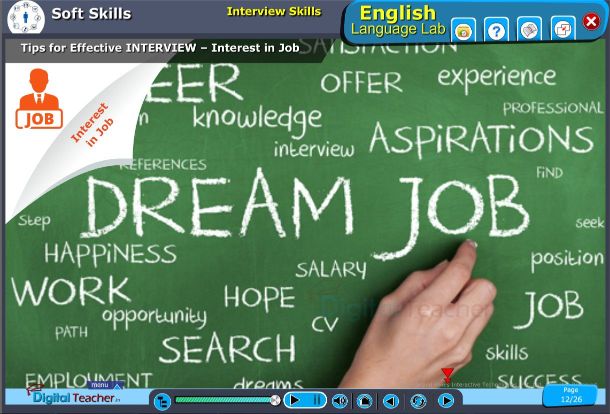 Tips For Effective Interview
Tips For Effective Interview
- Tips for Effective INTERVIEW – Arrival
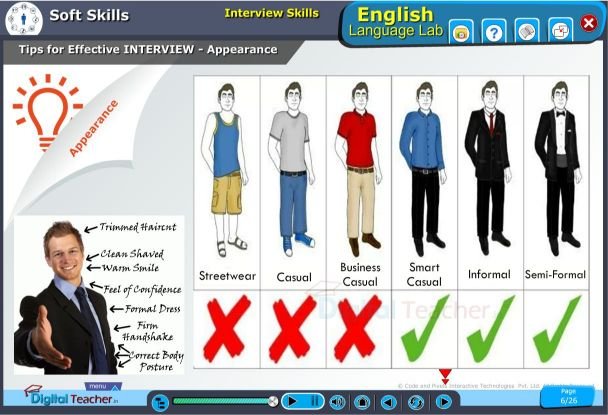 Tips For Effective or Successful Interview
Tips For Effective or Successful Interview
- Sample – Self Introduction
- Tips for Effective INTERVIEW – Eye Contact
- Tips for effective INTERVIEW – Body Language
- Tips for Effective INTERVIEW – Interest in Job
- Tips for Effective INTERVIEW – Give interviewer Chance to Speak
- Tips for effective INTERVIEW – General Tone
- Tips for effective INTERVIEW – Closing
- Tips for effective INTERVIEW – Closing
- Activity – Interview Skills
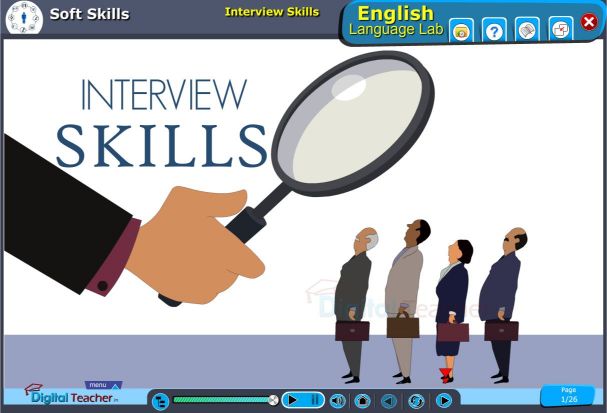 Tips For Interview Skills
Tips For Interview Skills
- What is JAM (Just a Minute) round?
- Tips for cracking JAM Round
- Activity – Jam
- Job Specific Rounds
- Job Specific Rounds
- Expectation from Candidate – HR Interview
- What creates Bad Impression




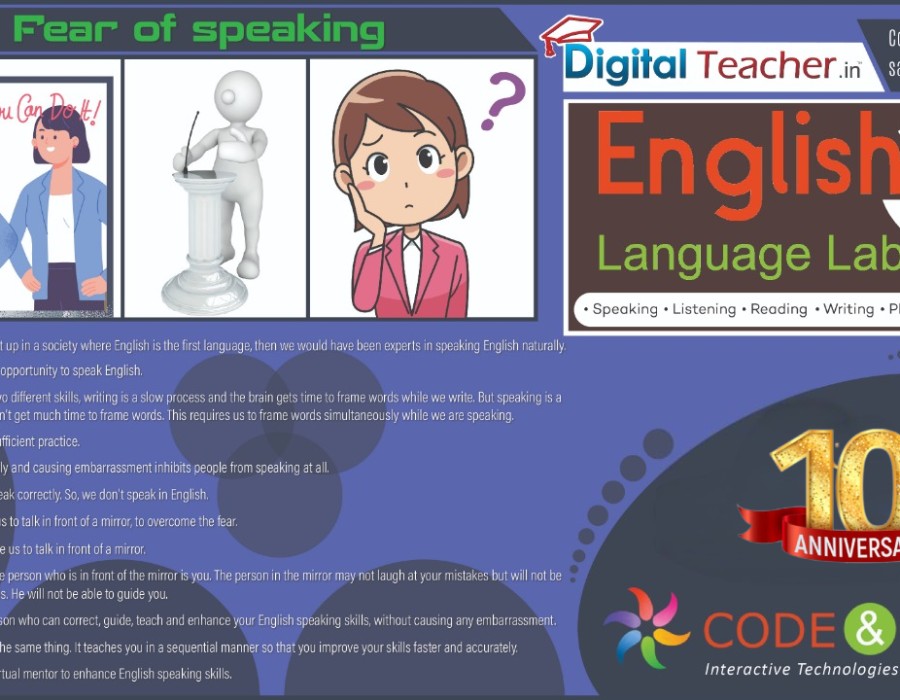
Comments